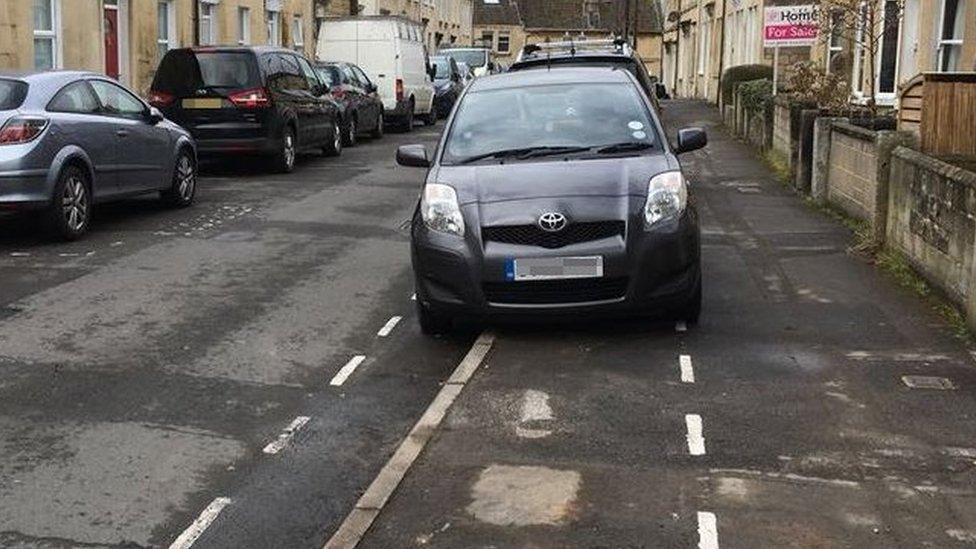Pavement parking: 'No quick fix to selfish drivers'
- Published
Rhian Morris says she and her seven-year-old often have to walk on the road to avoid parked cars
Banning "selfish" drivers from parking on pavements may not be the best way to improve access for people with disabilities, a minister has said.
Rhian Morris and her son Harley, seven, are both visually impaired. She wants Wales to follow Scotland and outlaw parking on pavements.
She said she had been sworn at after asking drivers to move their cars when on the school run in Bridgend.
But deputy minister for transport Lee Waters said there was no quick-fix.
He said: "We don't have clear-cut laws to be able to ban it outright and I'm not sure if an outright ban would be the right solution."
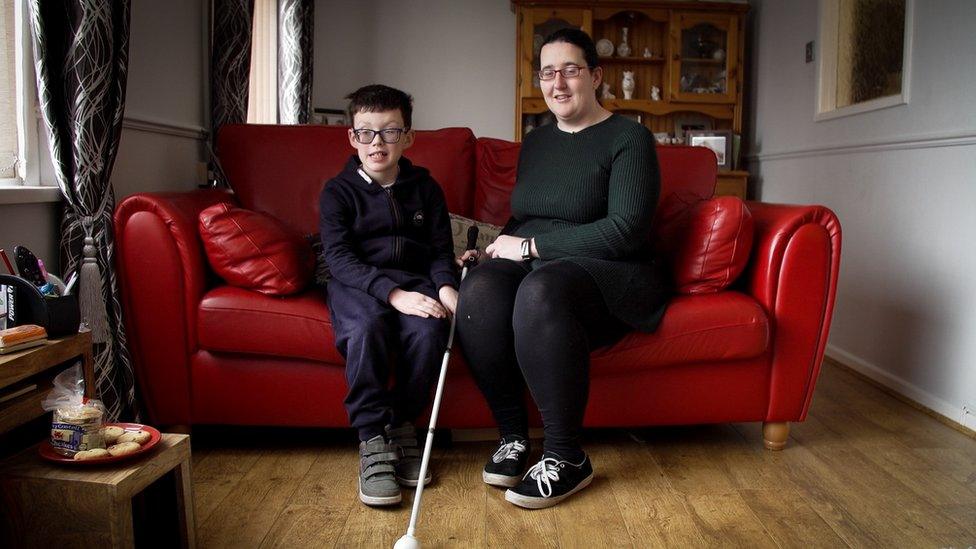
Rhian Morris and her son Harley, seven, say walking to school has become a "nightmare"
"Pavement parking is at its heart an anti-social issue, people being selfish, not thinking about the impact their behaviour is having on other people and for people with pushchairs, people with disabilities, particularly people with sight problems it can cause a real menace.
"But there's no point in penalising people who've got no option other than to park on the pavement outside their house, that will achieve nothing.
"What we prefer is an approach that allows local authorities to use their civil powers, the power to fine, to target specific hot-spot areas."
In July, Mr Waters said an expert group would consider how to tackle pavement parking.
He said since then the group had been meeting regularly, published an interim report and he was expecting the final report in the summer.
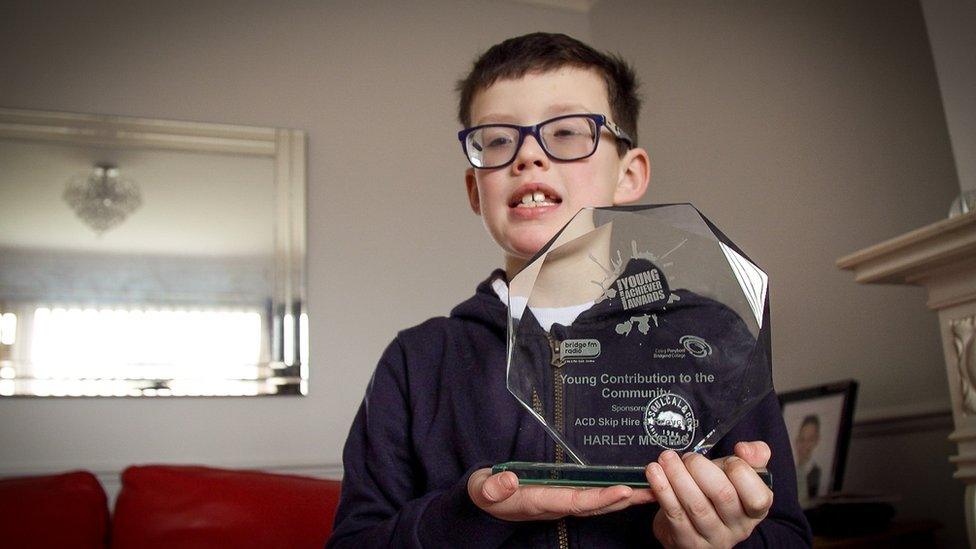
Harley has been given an award for the work he does to support his mother
She has also lodged a petition with the Welsh assembly.
'Dangerous'
"It makes our lives and other people's lives really difficult," her son Harley said.
His mother added: "We get around okay but it takes a lot of planning. His friends help him and teachers look out for him.
"It's simple things we don't see, like street furniture and stuff.
"Often you don't see the car until it is too late. We have to go onto the road which is very dangerous."
She said walking Harley to school was a particular challenge: "I should enjoy it because I only get to do it two or three times a week but the parking around his school is horrendous."
"And the way they [drivers] speak to you when you ask them not to... I've been sworn at in front of my child - 'you cant tell me where to park'.
"I want to raise awareness but they don't listen when you try to explain.
"It's a nightmare... it's a massive issue....
"Unless you live it yourself or have someone that you know who lives it it can be something that you don't really think about."
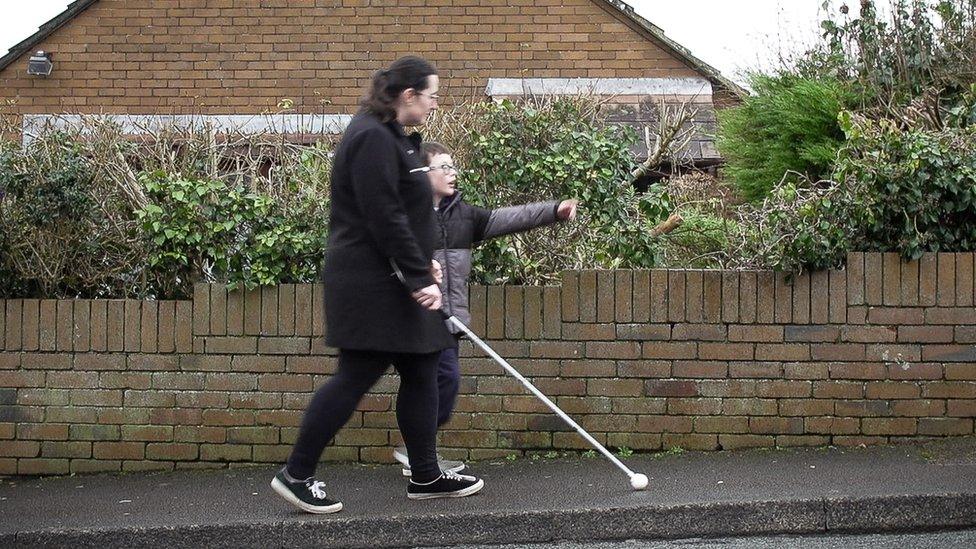
Ms Morris says she has been sworn at in front of her son when asking drivers to move
Ms Morris would like to see a phone app created where people can take a photograph of cars parked on the pavement which leads to them being fined.
She said she knew of others who were struggling with the issue: "I've had people ask me to contact their local authority because they're so scared to do it.
"One lady was being threatened after reporting a family blocking her in in her wheelchair. They were threatening her. She was scared to leave the house."
She said if Wales was to explicitly prohibit pavement parking, as has been done in Scotland, it would mean "a great deal".
"I want the best for my son's future, I want him to have as much independence as he can."
- Published4 July 2019
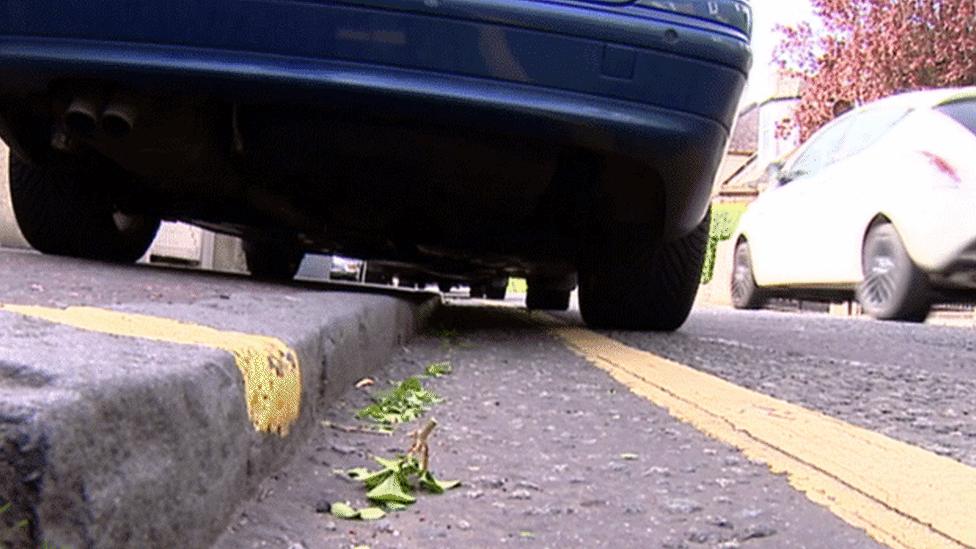
- Published9 September 2019
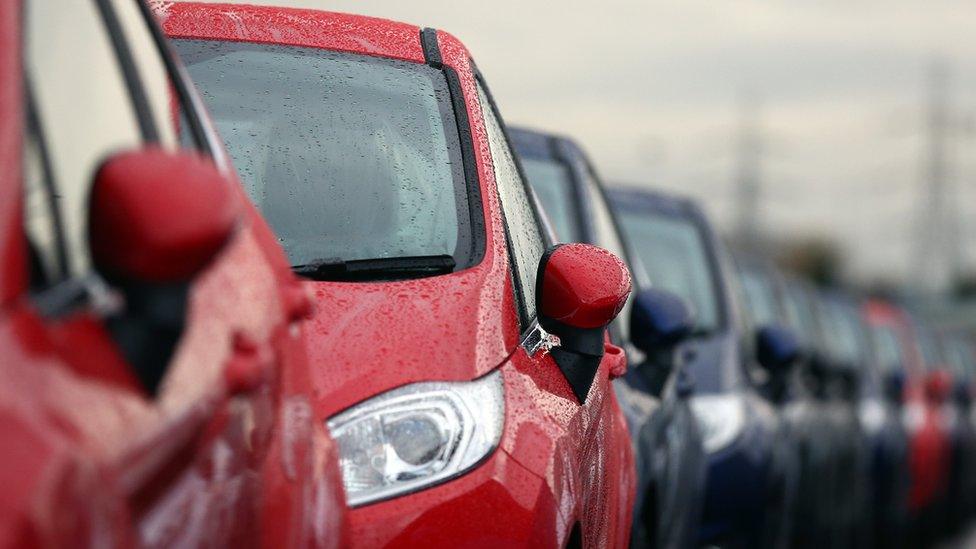
- Published13 June 2018
